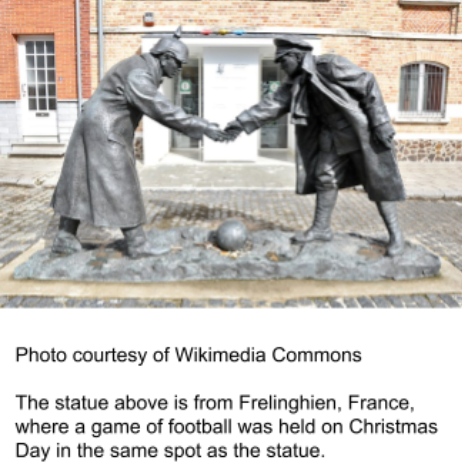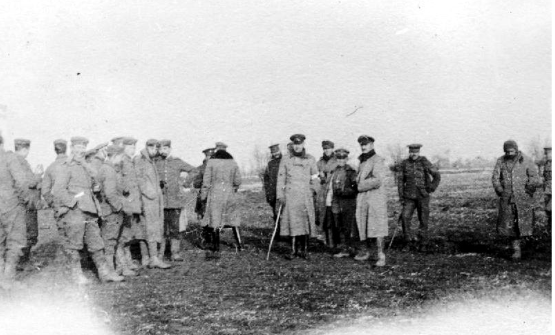EMMAUS- Although Christmas is around the corner, there are some people who are unaware of how important the holidays are to the point where it played a historic role in World War I.
When the Great War started in Europe more than a century ago, it quickly spread to the rest of the world and resulted in one of the deadliest wars in history. In the months leading up to World War I, tensions escalated between European powers as a result of them colonizing so much territory and becoming paranoid about each other’s ambitions to the point where they promoted endless propaganda painting their adversaries as villains.
The conflict came to a head when the Black Hand, a nationalist group in Serbia, assassinated Franz Ferdinand, the Archduke of Austria-Hungary, at which point World War I officially started between the Central Powers and Allied Powers. The Central Powers were made up of the German and Austria-Hungary Empires while the Allied Powers included Britain, France, Russia, and other countries.
The conflict was referred to by many at the time as the “war to end all wars,” a phrase first coined by H.G. Wells, a British author. The war’s cause is still infamous in the modern day.
David Brown, an American Studies I teacher at Emmaus High School, shared his thoughts on how the Great War broke out.
“Wars are generally rich mens’ wars,” Brown said. “…Wars are created by governments but fought by the youth.”
When the war commenced, both sides believed the conflict would end by Christmas. But when fall came, a stalemate occurred and fears arose that if the War did not end by Christmas, it would drag on for a long time since troops would lose motivation to fight during the holiday season. Higher-ups even allowed their soldiers to receive gifts from their home countries to boost morale.
As Christmas came along the frontline in Belgium, German troops started singing carols and celebrating by setting up small Christmas trees. At first, British soldiers thought it was a trick due to the manipulation made by their higher-ups that the German Empire was a menace that had to collapse. It is a practice still used today to motivate troops to fight for their countries, whether that be America in Vietnam or Russia in Ukraine.
More than 100,000 British and German troops overlooked all they learned about their enemy as they met in the middle of the battlefront, exchanged goodwill and played European football despite knowing any disobedient soldier would receive a punishment or die.
The peace between the two enemies even affects present-day America, a country that did not join World War I until 1917, after its ships received attacks from Germany.
Melissa Montero, another teacher in the History department at Emmaus High School, voiced her thoughts on the historical event.
“Even in conflict, people can find a way to compromise,” Montero said.
Although the truce sparked an unexpected peace between British and German troops, many wondered if the war would continue. The higher-ups on both sides eventually quelled the newly-found comradery between the soldiers by threatening to punish them and continued to do so to keep any future truces from happening. Some soldiers even relocated to other trenches so they would not have to kill their newly made friends.
The Christmas truce came off as a surprise to the world when it first happened.
Pope Benedict XV of Vatican City attempted to create a truce between the Allies and Central Powers right before Christmas but neither side agreed to it.

The memory of the Christmas truce still lives on today through way of a statue made in France in 2008 that depicts the moment when British and German troops laid down their arms and celebrated the holiday together.
Although the Christmas truce started off as an illegal, unofficial ceasefire during the first winter of the Great War, it still showed that citizens could look past their nation’s propaganda and establish peace, even during an era of ever-expanding empires and what was originally envisioned as a War that would conclude by the end of the year.




